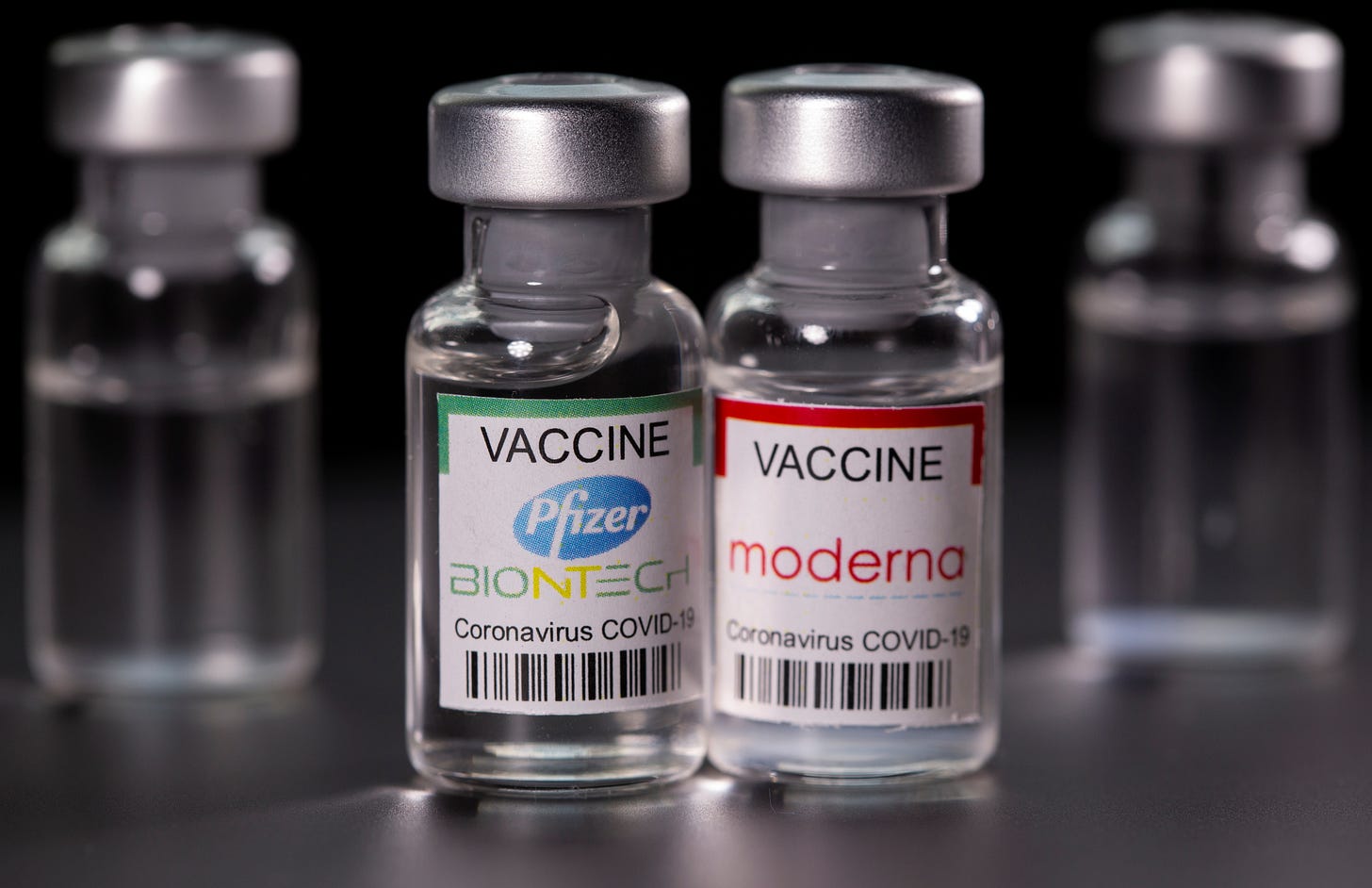From Bad to Worse
The mRNA COVID vaccines really may cause cancer
It’s as bad as we thought. Actually, maybe it’s worse.
New evidence suggests that yes, genetic material from the experimental mRNA COVID-19 shots can be incorporated into the recipient’s own genome—their genetic code—and yes, this probably can cause cancer.
We were warned this might happen, with good reason, but those warnings were brushed aside so that tens of millions of Americans could be injected with these new experimental treatments and the corporations that created them at record speed, under loosened safety conditions, could make record profits.
Moderna hadn’t brought a single product to market before its mRNA shot, but now the company is worth billions of dollars and has its own “disinformation department,” stocked with former intelligence agents, to monitor public sentiment and work with governments, public-health agencies and social-media companies to censor and deplatform people who think the wrong things about its products.
The pandemic created monsters—and it may still be creating them.
The new evidence is presented in a preprint study that went online this week. A preprint study has yet to undergo the process of academic peer review that’s considered essential to establishing a paper’s validity. Papers are usually peer-reviewed before they end up in the pages of a journal. The fact this new paper hasn’t been peer-reviewed in no way undermines its findings.
The paper focuses on the case of a previously healthy 31-year-old woman who developed an unusual and extremely aggressive form of bladder cancer after receiving three doses of Moderna’s mRNA shot.
As the paper notes, bladder cancer is “predominantly a disease of older adults” and when it does occur, “it is typically aggressive and carries an unfavourable prognosis.”
“Stage IV (metastatic) bladder cancer in a woman in her early 30s is an extremely outlier, documented mainly in isolated case reports,” the paper explains. “Such advanced disease at this age falls far outside the usual epidemiological pattern and underscores the highly unusual nature of this patient’s presentation.”
The woman was selected for genetic analysis precisely because of the rareness of her diagnosis.
According to one of the study’s co-authors, Nicholas Hulscher, the woman’s vaccination led to a devastating series of changes in her genome that almost certainly caused her to develop cancer.
“We saw a perfect storm—genes that normally drive cancer were switched on, genes that normally repair DNA were broken, and broad disruptions in cell signaling were present across every biospecimen we tested. All of this emerged within a year of her mRNA vaccination series,” he said.
“Taken together, this pattern is biologically plausible for accelerating cancer progression.”
In basic terms: Key machinery within the woman’s body designed to protect against cancer stopped working. Her body had broken down—her cells were helpless.
The paper’s key discovery was that a fragment of genetic material in the subject’s own genome was a 100% match with a sequence found in the spike protein of the Pfizer-BioNTech mRNA vaccine.
The authors had to match the sequence against the Pfizer vaccine, because Moderna’s patented mRNA plasmid has not been deposited in the National Center for Biotechnology Information’s databank.
The researchers know, however, that the Pfizer and Moderna vaccines “share identical stretches of nucleotide sequence,” so there’s little chance the sequence came from anywhere else. The odds of a fragment being a 100% match with a sequence contained within the vaccines is reckoned to be about 1 in a trillion.
The researchers performed a complicated series of analyses of the woman’s cancer and her blood to identify mutations within her genome. The analysis included RNA transcriptome analysis—“a check of which genes are actively turned on or off inside the cells” and an excretion proteome analysis, an analysis of proteins in urine and other bodily fluids, “to show how the tumor and the body are behaving.”
The researchers discovered that the vaccine had introduced “heavily modified RNA molecules and lipid nanoparticle carriers” into the woman’s body. Vaccine manufacturers claimed the lipid nanoparticles wouldn’t spread beyond the vaccination site, a claim which has now been disproven by a number of studies.




